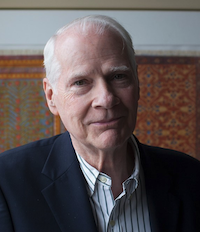ADVERTISEMENT
We Must Confront Difficult Policy Questions in the New Year

As the warmth, cheer, and camaraderie of our family and friends during the winter holidays begins to fade, we also must spend some time reflecting on the new year and what awaits us. For each of us, 2022 likely will be a year for making very difficult decisions and a year for taking necessary but very difficult actions.
In this new year, a series of complex issues likely will converge. Because 2022 also coincides with major Congressional elections, these issues will be framed in extreme and simple terms, greatly accentuated, discussed frequently, and often confused. Because of current potential threats to American democracy, these discussions even are likely to take on an apocalyptic tone. However, let us not permit that to lead us astray.
Below, I have separated several key issues in order to discuss them. However, it is very important to recognize they interact with each other, and decisions and actions about one will affect each of the others.
Personal rights for all: In our country, we pride ourselves on our personal rights, some of which are enshrined in the Constitution’s Bill of Rights. Yet, we also must recognize that these rights are neither absolute nor unconditional. Let me state just a few of the antipodes: How far should our right to freedom from search and seizure be limited by the need to protect our community? How far should our right to communication privacy be limited by the need to monitor domestic terrorist use of media? How far should our right to gun ownership be limited by the community’s right to safety from mass shootings? Clearly, many, many more questions of this type could be posed.
Social justice for many: How we frame our personal rights, together with the premise that all persons are created equal, will determine how we realize the concept of social justice. In its essence, social justice seeks to promote equity by moving resources from those who are more fortunate to those who are poor or disabled to increase the wellbeing of the latter. Here are just a few of the antipodes: How far should we promote social justice for those who are poor and disabled at the expense of other urgent community needs? How far should we promote social justice for one group at the expense of social justice for another group when resources are limited? How far should we promote equity in health status at the expense of cost containment for health?
Life chances for a few: The life chances of persons with mental illness or substance use conditions already are limited by our concepts of personal rights for all and social justice for many. They are limited further by stereotypes and stigma that persist to this day. Here are just a few antipodes: How far should we support self-determination for care at the expense of some with behavioral health conditions receiving no care at all? How far should we support better life chances for persons with mental illness at the expense of the life chances of other groups with disabilities? How far should we support better personal rights for persons with behavioral health conditions at the expense of community rights?
Clearly, each of these issues presents many thorny difficulties. However, as a field and as a society, we must find the appropriate balance on these issues. Such balance generally will depend on identifying the appropriate pivot point between personal rights and community rights, and between rights for all and rights for a subgroup.
Here are a few principles to guide our 2022 decisions and actions:
- Persons with mental illness or substance use conditions should have the same personal rights as all other Americans.
- Persons with mental illness or substance use conditions should have access to social justice resources and initiatives that is equitable with that of all other groups with disabilities.
- Decisions at one level should not adversely affect those at another. For example, efforts to limit personal rights around gun ownership for everyone should not become the occasion to inappropriately target the life chances for person with mental illness or substance use conditions. Gun control is a societal issue affecting everyone.
As the volume of the dialogue increases in 2022, we must not let the noise drown us out. Rather, we must stand our ground verbally and morally. We also must ask: Where do our representatives and senators stand? Where do our state and county officials stand? Where do we ourselves stand?
Our decisions and actions could not be more consequential. Which way will we go? What will be the outcome?
Ron Manderscheid, PhD, is the former president and CEO of NACBHDD and NARMH, as well as an adjunct professor at the Johns Hopkins Bloomberg School of Public Health and the USC School of Social Work.
The views expressed in Perspectives are solely those of the author and do not necessarily reflect the views of Behavioral Healthcare Executive, the Psychiatry & Behavioral Health Learning Network, or other Network authors. Perspectives entries are not medical advice.












